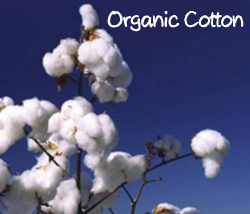ETHICAL FASHION
Ethical Fashion


Ethics are so different worldwide, so the term ethical fashion can represent many different concepts to different people. Ethical fashion is generally considered to be connected with textiles industry which has been made with respect for human beings and the earth and has a lesser impact than conventional fashion.
Ethical fashion is the meaning of ethical action including no harm and representing a solution which leads to take an active role in reducing the gap between the rich and the poor, providing sustainable livelihood creation, minimizing the conflicts between environmental concerns and economic development.
In fact, ethical Fashion aims to address the problems coming from the fashion industry, such as exploitative labour, environmental damage, the application of hazardous chemicals, production waste, and animal cruelty. Therefore, the appearance of ethical fashion in textiles industry is an umbrella covering the ethical fashion design, production, retail, and purchasing for this supply chain.Ethical Fashion Forum which is founded in United Kingdom and grouped by famous companies and organizations addresses six critical guidelines for the fabrics industry illustrated below:
1.Use of Organic Materials:
Conventional cotton provides much of the world's fabrics, but for growing, it uses 22.5% of the world's insecticides and 10% of the world's pesticides, chemicals which can be dangerous for the environment and harmful to the farmers who grow it. To follow the principle of ethical fashion, we should apply organic cotton instead of GMO cotton, and prohibit to use pesticide & synthetic fertilizer using.(EEF)
2.Use of Natural Material:
To reduce the impact of environment for textiles production, we should choose the sustainable materials including natural fibers wool, linen, hemp, silk, bamboo or fair trade cotton.(EEF)
3.Use of Recycled Materials:
The UK alone throws away 1 million tones of clothing every year. (Waste Online). Though the re-use of waste fabric or use of recycled yarns, we could create the eco-friendly products; meanwhile, we could save the environment in effective and efficient way.(EEF)
4.Emphasis of Know-How Protection:
The Know-How protection is concerned by the Ethical Fashion Forum. It is very important to conserve the local craftsmen's' artwork and respect the originality of the patterns or pictures when we enter into the industrial production. By following the principles of ethical fashion, enterprises have opportunities to reserve the technology and knowledge of traditional textiles, inherit the techniques to the next generation further, and enrich the local culture and increase the diversities of textiles industry.(EEF)
5.Help the Disadvantaged Groups:
Under the principles of ethical fashion, enterprises promise to help disadvantaged groups and lagging areas by providing opportunities of garment manufacturing and training programs in living. Most importantly, they are going to establish training center, residence and medical center to enhance the development of local communities.
6.Compliance of Fair-Trade
Fair trade is about better prices, decent working conditions, local sustainability, and fair terms of trade for farmers and workers in the developing world. Fair trade focuses on the unfair of conventional trade, which seriously discriminates against the poorest, weakest producers. Compliance of fair-trade enables local producers to improve their lot and have more control over their lives.(Fairtrade Foundation)

 Taipei Innovative Textile Application Show 17-19 October 2016
Taipei Innovative Textile Application Show 17-19 October 2016 Munich Fabric Start 30-01 August 2016
Munich Fabric Start 30-01 August 2016